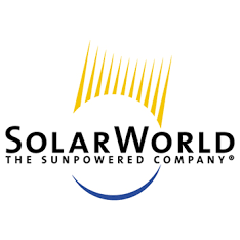NEW GENERATION SCIENTISTS AWARDED FOR PASSIVATED CONTACTS
Peter Adelmann, university professor in Ulm, founder and CEO of the “Institute for Decentralized Electrification, Entrepreneurship and Education” (id-eee) was presented with the SolarWorld Einstein Award yesterday evening. The award honored the commitment of the solar pioneer, developer and manager to rural electrification and sustainable solar projects. For years, Peter Adelmann has ensured the electrification of rural areas in Africa or Asia, for example.
“To us, his approach of using solar power to enable people to gain knowledge or build up their own business and thus flee poverty on their own two feet, is exemplary,” explained Dr.-Ing. E.h. Frank Asbeck, when asked why the 54-year-old developer, businessman, mentor and ambassador for photovoltaics was presented with the award.
Peter Adelmann has actively worked in the field of photovoltaics, including as an advisor for different governments, the UN and the GIZ, for over 30 years. As well as research, optimization and the testing of energy-efficient devices and batteries, his work also focuses on training “solar entrepreneurs”. These individuals construct and sell energy-saving devices and solar modules, and in so doing improve the quality of life in rural areas in Africa, South America, Asia and Central Asia.
TWO WINNERS RECEIVE THE SOLARWORLD JUNIOR EINSTEIN AWARD
As part of the 12th SolarWorld Einstein Award competition, the 11th SolarWorld Junior Einstein Award was also presented. The international competition is targeted at new generation scientists who conduct research on all photovoltaics-related topics for their final dissertation. After a multi-stage selection procedure, this year, two young scientists were honored with the prestigious award.
Dr. Frank Feldmann conducted research on passivated contacts as a doctoral candidate at the Fraunhofer Institute for Solar Energy Systems (ISE) in Freiburg with his paper on “Carrier-selective contacts for high-efficiency Si solar cells”. “Within the scope of his dissertation, he laid the foundation for the new effectiveness world record of 25.1 percent for double-sided contacted silicon solar cells,” the jury explained. The world record to date was broken after almost 20 years, and at the same time was also brought to Germany. A jury chairman Dr. Holger Neuhaus told us: “Frank Feldmann succeeded in doing so with an entirely new approach, which also has the clear potential for even greater benefit in the future.”
The second prizewinner this year, Udo Römer, also worked on passivated contacts in his dissertation entitled “Polycrystalline silicon/ monocrystalline silicon junctions and their application as passivated contacts for Si solar cells” at the Institute for Solar Energy Research in Hamelin. According to the jury, Dr. Römer was honored with the award because “he succeeded in producing the best contacts in the world, as well as developing the theory relating to these contacts further at a fundamental level.”


























